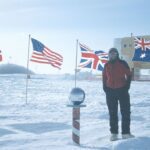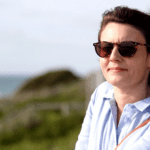While you’re never too old to learn, the brain’s ability to adapt and rewire itself is at its highest during the first 1000 days of life, when it’s at its most “plastic” state.
This ability – known as neuroplasticity – offers a brief but critical window to shape a child’s development.
Professor Catherine Elliot from the School of Allied Health and the team at Kids Rehab WA know just how crucial this period can be.
Kids Rehab WA is a network of researchers, clinicians and consumers from Curtin University, Perth Children’s Hospital and Telethon Kids Institute. Alongside Professor Elliott is a key group of Curtin researchers including Dr Sarah Hall and Dr Caroline Alexander.

Photo: Kids Rehab WA team
Together, they are bridging the gap between research and clinical services to give children the very best possible start at life.
The Kids Rehab team delivers evidence-based treatments, backed by more than 20 years of research, to WA children with acquired or congenital neurological conditions, such as cerebral palsy.
“Timely and early intervention can make a lifetime of difference for children and their families,” Professor Elliott said.
“We have patients who are walking now that might not have been able to if they weren’t diagnosed as early as they were.”
Kids Rehab WA forms part of the Centre for Research Excellence (CRE), a National Health and Medicine Research Council (NHMRC) funded project, working to improve the long-term health outcomes for children with cerebral palsy across the country. Professor Elliott, who has a clinical background as an occupational therapist, was a Chief Investigator and the WA lead on the CRE in 2016.
Their work has been translated into clinical guidelines, policy, and practice at a state and national level.
“We’ve been able to detect cerebral palsy in children as early as 12 weeks by looking at their general movements,” Professor Elliott said.
“We look at their movement patterns – the way they wiggle. These tend to be good indicators of how well their brain is developing.”
“One interesting thing we noticed over the years is that some of the children who might not have developed cerebral palsy have ended up with other developmental disorders, such as cognitive impairments or autism spectrum disorder.”
“From this we realised that early movements could help us understand a lot more about the developing brain. This is how our latest project, Early Moves, came to life.”
Early Moves is a collaboration with a range of research and funding partners from across Australia, including Telethon Kids Institute, as part of the ORIGINS project.
Co-led by Professor Elliott and Professor Jane Valentine from the Perth Children’s Hospital, the Early Moves project is investigating whether a baby’s early movements can predict learning difficulties later in childhood.

Photo: Professor Jane Valentine and Professor Catherine Elliot
And it’s all being done through a smartphone app.
“We want to make sure children get the right intervention at the right time,” Professor Elliott said.
“But we also want to offer services that are easy to use and accessible to as many families as possible.”
“This home screening fits into their day-to- day activities. Parents just need to take a 3-minute video of their baby during the first 14 weeks of life, upload it to the app, and then the footage is scored by one of our experienced clinicians.”

Photo credit: Early Moves
The babies also receive an early screening for risk of cerebral palsy at the 12-week mark.
Babies found to have abnormal movement patterns are then referred to Perth Children’s Hospital for further assessment.
Currently children with potential cognitive impairments are not commonly diagnosed before the age of two. This world-first study could see children diagnosed earlier than ever before.
Just recently, the team hit a major milestone with over 3,000 total participants recruited to the study.
As the saying goes, it takes a village, so for Professor Elliott and the team, it’s a chance to support families as best they can during this difficult time.
A crucial element of their projects is the guiding role of the consumers – the families – who are represented through the Kids Rehab WA Consumer Steering Group.
“Parents generally know when something is not right,” Professor Elliott said. “They know their child better than anyone.”
“Ultimately, we want our research to be sustainable beyond the life of the project, and to do that, we need to co-design treatments that are family centred.”
– – –
Early Moves is funded by the NHMRC, Curtin University and the Perth Children’s Hospital Foundation, with support from Mineral Resources, Channel 7 via the Telethon Trust, West Australian Child Research Fund and the Cerebral Palsy Alliance.
Find out more about Kids Rehab WA and related projects.



